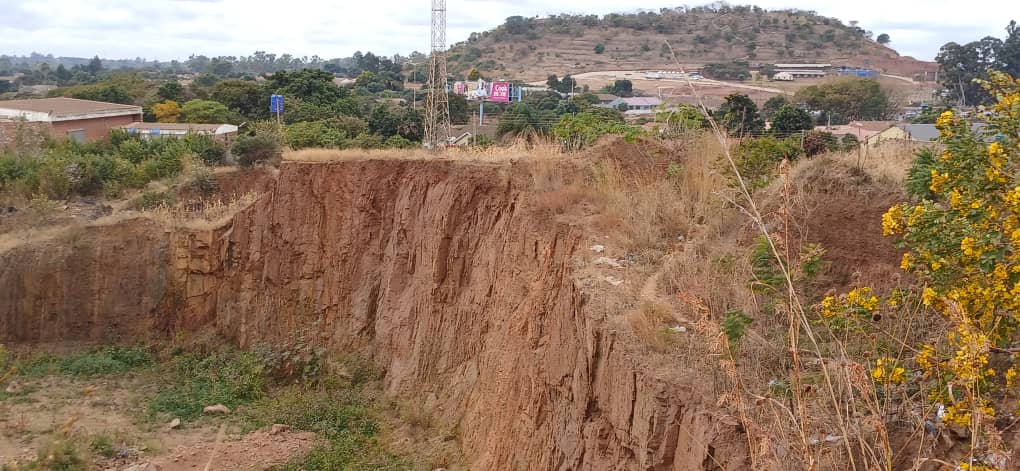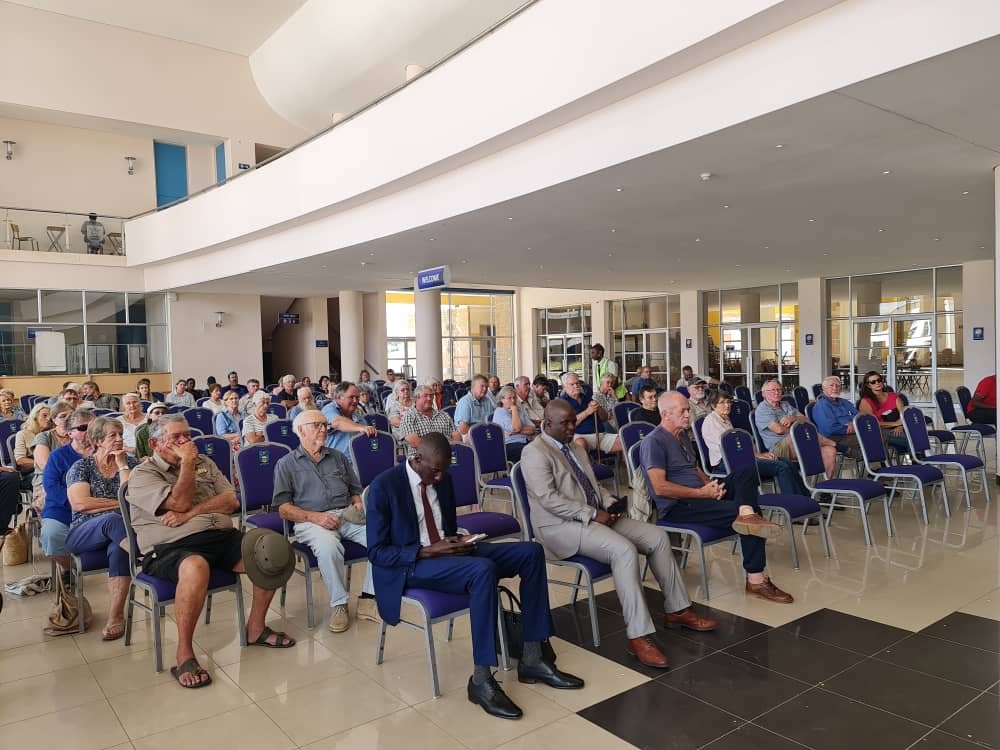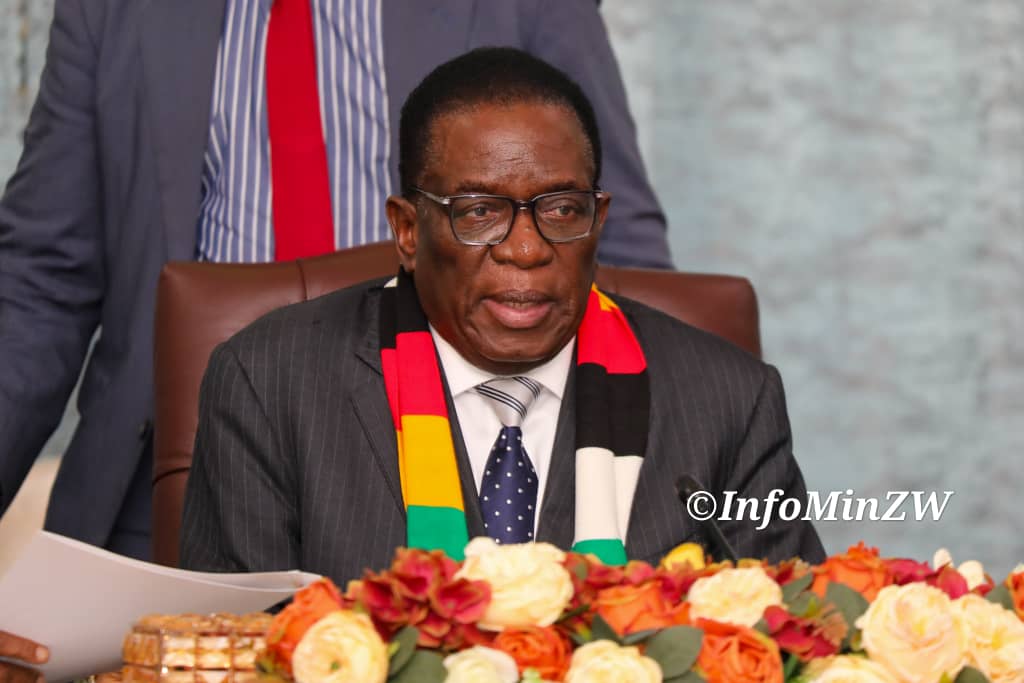HARARE – Harare’s once-scenic Warren Park 1 hills have been defiled by excessive gravel extraction by private companies contracted by the Harare City Council (HCC), sparking outrage among residents.
Excavator noise and constant truck traffic disrupt the tranquillity of a suburb which has the rich legacy of housing the iconic National Heroes Acre, the Museum of African Liberation and is adjacent to the National Sports Stadium, the country’s premier sporting facility.
Company excavators burrow into the remaining sections of Warren Park’s hills, tearing the earth with no restraint.
The environmental damage is a crying shame, moreso, given its persistence, an indication that the contractors have had no restraint from the Harare City Council (HCC) or the Environmental Management Agency.
An investigation revealed that companies extracting gravel in the area are not subject to any tender processes, let alone any hindrance.
Instead, they secure dodgy gravel extraction rights after winning a project, pay a royalty based on the extracted amount, and receive authorisation.
These royalties are intended to cover pit rehabilitation and road maintenance.
However, the HCC, responsible for collecting the fees, has demonstrably failed to fulfil its rehabilitation obligations.
This lack of commitment has angered Warren Park residents, who feel betrayed by city fathers.
Nixon Nyikadzino, the Warren Park 1 residents’ coordinator, highlighted the discrepancy between the promised rehabilitation and the ongoing destruction during a recent media tour facilitated by the Combined Harare Residents Associations (CHRA).
He cited a publication issued by HCC detailing the conditions under which gravel can be extracted.
“What is shocking is that the City of Harare states that there are royalties that are being paid by the companies that you saw mining this gravel.
“There hasn’t been any rehabilitation because this paper states that the monies paid to the City of Harare are supposed to undertake that responsibility of ensuring this land is rehabilitated and be reused for other purposes such as afforestation, agriculture, and even recreational facilities are built or constructed in this place.”
Nyikadzino said city authorities should start considering the “ecosystem that is being destroyed as a result of the destruction that of this mountain(s) but also the destruction and displacement of the species and animals that had found this area their place of permanent residence.”
The scarred landscape, which has been deprived of its great attribute of being a local tourist and religious attraction, has seen the indigenous wildlife and ecosystem also destroyed.
Local monkeys which enjoyed the area as a natural habitat have been forced to occasionally stray onto nearby homes scavenging for food, making residents’ situation a living hell.
Nyikadzino further emphasized the need to investigate whether HCC has a proper rehabilitation plan and whether an Environmental Impact Assessment (EIA) was conducted before the extractions began.
EMA spokesperson, Amkela Sidange, said Zimbabwean laws have not empowered them to regulate gravel extraction, although they can monitor its environmental impact.
Sidange said the Warren Park gravel sites predate the requirement for EIAs, and thus EMA cannot be held accountable under this regulation.
“Take note those are the City of Harare borrow pits that were established way back before the principle of Environmental Assessment came to play,” she said..
“Knowingly, the law cannot be applied in retrospect.
“To curb environmental damage or to ensure that there is control, the city of Harare was then made to come up with an Environmental Management Plan.
“We do not have an Environmental Impact Assessment for that site because it was established way back before the principle came into play.
“The agency (EMA) then made the City of Harare to establish an Environmental Management Plan which has the implementation stage and the decommission stage and its very clarified in the plan that the extraction should be around the hill and not the vertical such that they do not open up these ugly pits.”
Despite Sidange’s assurances, observations on the ground showed that some hills in Warren Park 1 have been severely affected by vertical extraction methods, posing a threat to residents and religious groups frequenting the area.
Rueben Akili, the CHRA director, lamented the environmental and ecological consequences of the gravel extraction.
“We are very much worried over exploitation and degradation of the Warren Park Hills, especially the hill which is located in the western part of Warren Park where there are some people who have been contracted to extract gravel by the local authority.
“And in turn, they pay for royalties. However, we haven’t seen anything like that and possibly, we have also tried to engage the local authority in terms of how much revenue has been accrued by such and we have not received such.
“The first step we are going to take is that we are going to engage the Environmental Management Agency to be able to get the Environmental Impact Assessment Report and certificate so that we can be able to ascertain the environmental action plan that is in place in order to ensure that hill or mountain is not over exploited and degradation in such a manner that we are witnessing,” said Akili.
CHRA also plans to engage parliament as a possible avenue to address the land degradation and environmental concerns.
Akili said the residents’ group was also determined to pursue legal channels if diplomatic efforts failed.
He slammed HCC’s environmental practices, accusing the local authority of deforestation and allocating housing on wetlands that play a vital role in carbon absorption.
On its part, HCC admits there have been some illegal gravel extraction operations which have not been sanctioned by council which he did not want to comment on.
City chief engineer Gerald Mutumhe, “There are illegal activities on going in Warren Park hills which our enforcement is seized with and I don’t want to answer on illegal issues.
“I want you to see what is under the city’s control,” said Mutumhe.
















